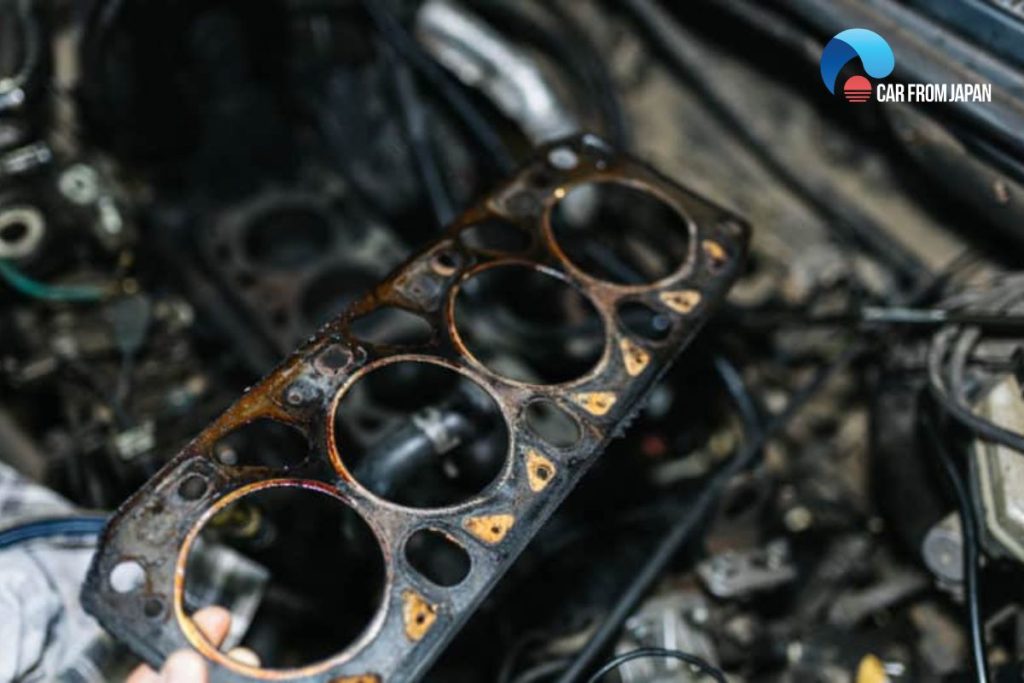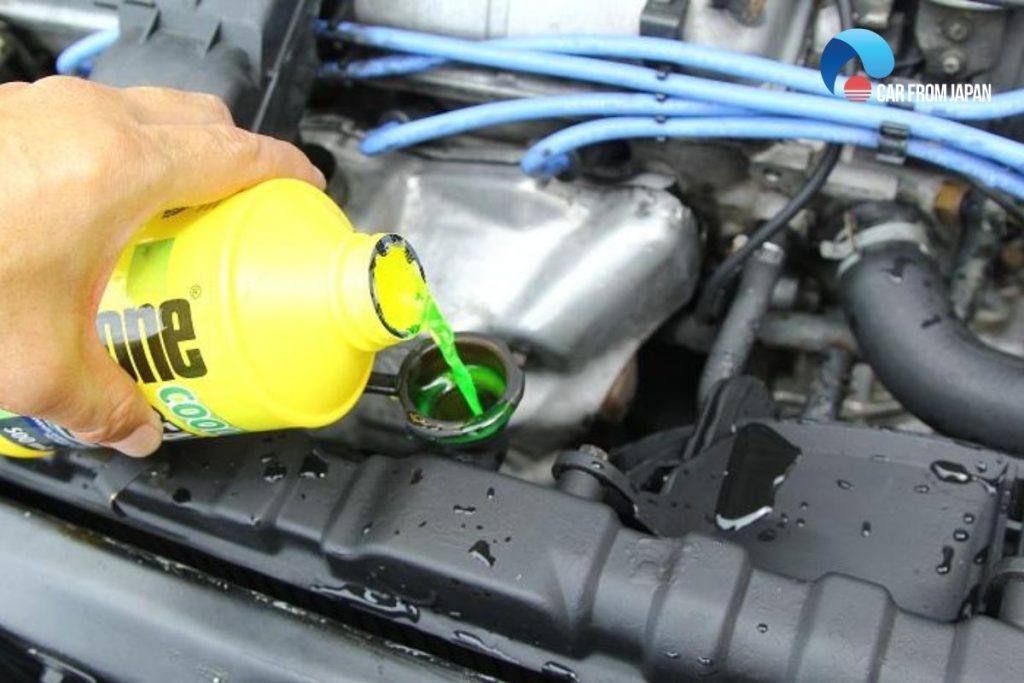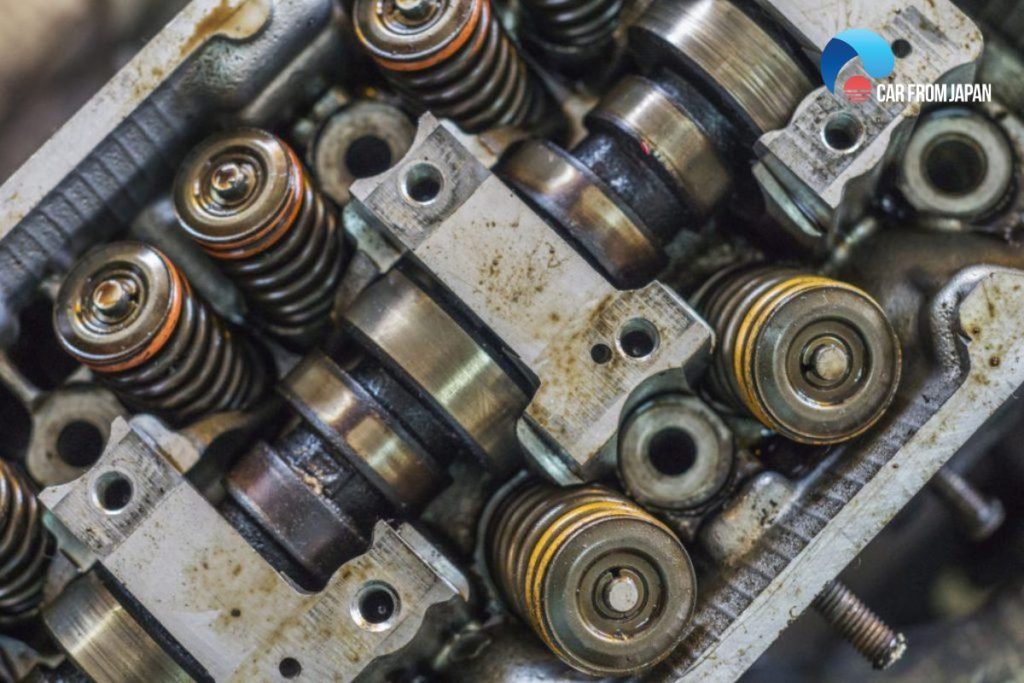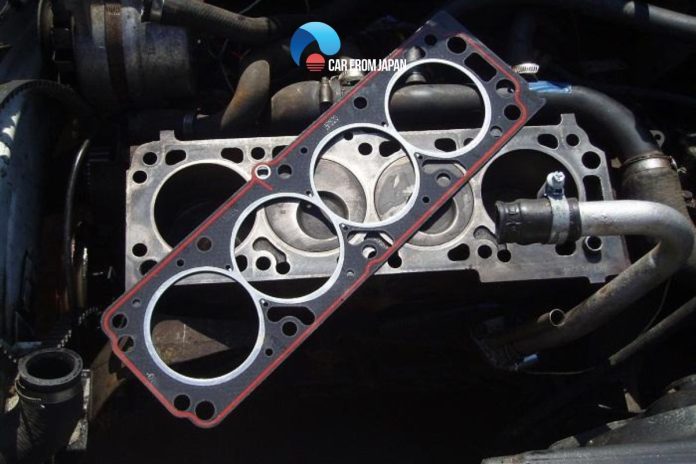Resulting from a cracked head gasket, an engine can consume extra oil or coolant, so troubleshooting broken head gasket symptoms is extremely vital!
Contents
What Is A Head Gasket?
First, if you still wonder what is head gasket, we have an answer for you now!
The head gasket is an essential component of the engine system of a vehicle tucked between the engine block and the cylinder head.
The primary function of a head gasket is to seal in the internal combustion process so that the two highly combusting fluids: coolant, and oil, don’t mix with each other.
Now that we understand what a head gasket is, it’s necessary to know cracked head gasket symptoms to avoid higher costs because of additional engine damage caused by driving with a cracked head gasket.
In fact, this problem even happens frequently in Subaru and has become a stain on the company’s impressive record of manufacturing first-class vehicles. To understand the symptoms it can be helpful to understand why a head gasket might fail.
Cracked Head Gasket Symptoms
Symptoms of a bad head gasket are sometimes hard to diagnose and costs a huge sum of money for repair or replacement. The problem in a head gasket starts with just a leakage in the cooling system.

However, it will turn into a bigger problem if it goes unnoticed due to irregular maintenance. Let’s check out the symptoms of a cracked head gasket with Car From Japan right now!
Engine Overheating
The reason behind may be a lack of coolant or the combustion process. Of course, it can lead to many other problems. For example, metal components may enlarge which will cause cracks or warping.
Overheating the engine is one of the most common but not the only signs of a cracked head gasket. So, just an overheated engine doesn’t mean that the head gasket needs any repair.
Dropping Coolant Levels
If the coolant level drops faster than normal, your car is likely to have a problem with the head gasket. A cracked head gasket might lead to a leak, which will be tested by pressurizing your cooling system and watching for pressure loss.
Engine Misfire
When the coolant leaks into an engine cylinder, it misfires. So, a misfiring engine can be a possible symptom of a faulty head gasket.

Excessive Exhaust Smoking
When plenty of coolant leaks into the cylinders, the smoke yielded by the combustion process comes out of the exhaust system. It usually happens when the initial leakage is not treated in time.
Milkiness In Engine Oil
Another cracked head leak symptom is milky white oil. Because the coolant leaks into your combustion chamber, it will seep past your piston rings into your oil.
During the time, oil will mix with this liquid to turn into a milky white color. On your dipstick and around the engine oil cap are the place you can easily see this symptom.
How To Avoid Cracked Head Gasket?
We all know that prevention is better than cure. So, you need to do regular maintenance of your car to avoid all cracked head gasket symptoms.
Otherwise, the fixing job will drain your wallet very fast. There are three methods you can use to diminish the chance of cracked head gasket.
- Your combustion chamber should be kept under low pressures as possible
- Avoid overly advanced timing or carbon build up with engine
- Do not downshift to slow your car and re-match anytime in case your car has a manual transmission.
Cracked Head Gasket Repair
A cracked head gasket is easy to repair if you can detect the leakage at the initial stage. There are many sealing products available at auto repair shops. You just have to add the sealer to the radiator and the leak will be sealed as you drive.
The type of the sealer will depend on the number of engine cylinders and the size of the leak. Normally, the sealers will work in the case of small leaks.
However, your car will need a head gasket replacement if the problem is not detected early. You may need to repair the engine block and the cylinder head or a complete engine replacement only.
A gasket replacement needs the removal of a number of engine components. Putting all these parts back together requires specific torque settings to ensure a proper installation.

FAQs About Cracked Head Gasket
How long will a cracked head gasket last?
A blown head gasket can cause serious engine damage, so it’s crucial to recognize the warning signs and address the problem quickly.
Depending on the severity of the leak, a car with a blown head gasket might not last much longer than a month without repairs.
Can you drive with a cracked head gasket?
While technically you can drive with a cracked head gasket, doing so is highly discouraged and will likely worsen the damage.
Continuing to drive risks overheating, coolant loss, oil contamination, and potentially catastrophic engine failure.
A cracked head gasket requires immediate attention, so it’s best to have your car towed to a mechanic as soon as you suspect a problem.
Ignoring the issue will almost certainly lead to more extensive and expensive repairs later.
Is it worth fixing a cracked head gasket?
Repairing a cracked head gasket is a significant investment.
Consider the vehicle’s value: It’s generally only worthwhile if the car’s worth is at least double the repair cost. Otherwise, replacing the vehicle might be a more financially sound decision.
How much does it cost to fix a cracked head gasket?
Repairing a cracked head gasket typically costs between $1,000 and $2,000, but in some cases, especially with complex engine designs or extensive related damage, it could exceed $3,000.
How do I know if my head gasket is cracked or blown?
A cracked cylinder head and a damaged head gasket share similar symptoms.
If you experience any combination of the following, professional diagnosis is crucial: engine overheating, low coolant levels, white exhaust smoke, bubbling in the radiator or coolant reservoir, unexplained coolant loss, milky oil, misfires, rough running, or a flashing check engine light.
Check out this video from 2CarPros for a tutorial of 6 easy tests to detect a blown head gasket in a car engine!
Besides the list of notices mentioned above, check maintenance tips from our experts to get more information about cracked head gasket symptoms or tricks to avoid other car problems!




It’s interesting to read about some of the common symptoms of a bad head gasket. I’ve noticed a lot of smoke coming from my car and I’m concerned that it could be the gasket. I’ll have to look into getting a new one as soon as I can to make sure I can continue driving the car without ruining it.
It’s perfect time to make some plans for the future and it is time to be happy.
I’ve read this post and if I could I wish to suggest you
few interesting things or tips. Maybe you could write next articles referring to this article.
I desire to read more things about it!
Thank you for your comment. Find this article useful? Please share exciting updates with your friends and they will love it!
Can cracked gasket reduce car power
How much is head gas kit Of Honda accord 2004 automatic
Hello , anybody know the torque settings and sequence to fit a head gasket on a honda beat pp1 3 cylinder engine Mtrec
Cheers,
Keith.